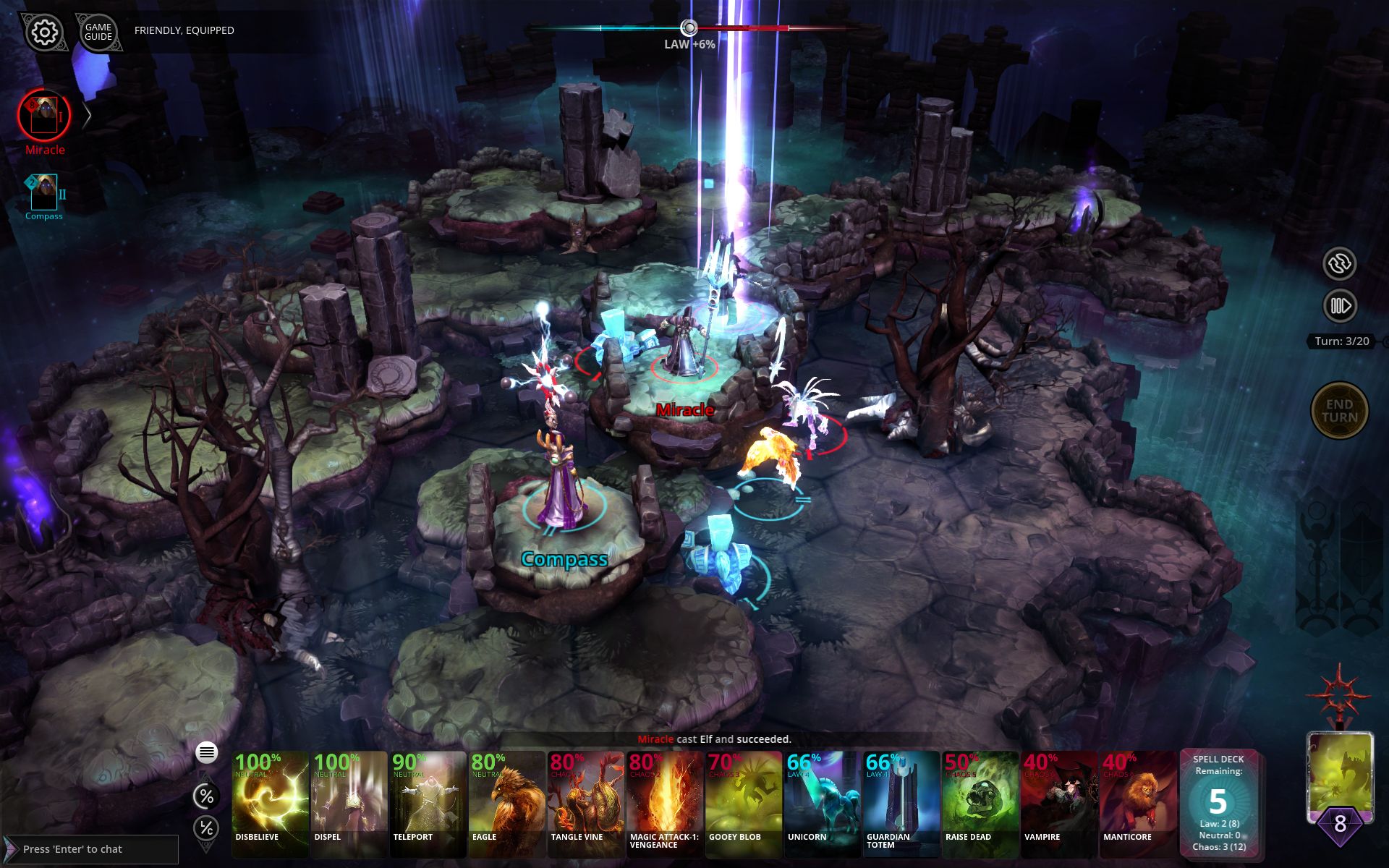Our Verdict
A true wizards wheeze, and a fine return for one of gamings oldest tactical classics.
PC Gamer's got your back
What is it? A magical duel for between 2 and 4 players, where spells cut the air and summoned monsters battle it out… unless the spells fizzle out, which they often do.
Influenced By: Magic & Mayhem
Reviewed On: i7, GTX 970, 8GB RAM
Alternatively: King’s Bounty
Expect to pay: £15 / $20
Release: Out Now
Publisher: Snapshot Games
Developer: Snapshot Games
Website: Official site
Multiplayer: 2-4 (deathmatch and co-op)
Your love for or frustration with Chaos Reborn, the remake of that Julian Gollop game that’s not Laser Squad or X-COM, hinges on one question: do you feel lucky? Well, do ya, no doubt lovely and intelligent person? It’s a game of surprising depth and complexity, where wizards wage war with powerful spells and summoning hideous beasts to fight in their name—but it’s also one where, totally guaranteed, your dragon with a 90% chance to clobber the enemy in the next hex will fail miserably five times in a row, only to be casually annihilated by a passing goblin.
This isn’t so much a design choice as a line drawn in the sand, not between good and bad, but by a philosophical divide almost as deep—exactly as Hearthstone players are currently torn between appreciating its random elements for spicing up rounds and objecting to each new element that puts success at the whim of invisible dice, which detracts from the purity of deck-building and skill based play.
As with Hearthstone, it’s not that simple. Chaos Reborn is a fiendish game on its own terms, and one with a high skill ceiling. Managing luck is simply part of that. When summoning a card or casting a spell, you only have a percentage chance of it actually working. If it doesn’t, you burn the card. However, that chance is malleable in a couple of basic ways. You can cast magic to slowly bring the general aura of the map over to either Law or Chaos, making your spells and summons more effective, or spend mana points to directly boost the chances of a spell creating a snarling hellbeast instead of a sad magic fizzle.
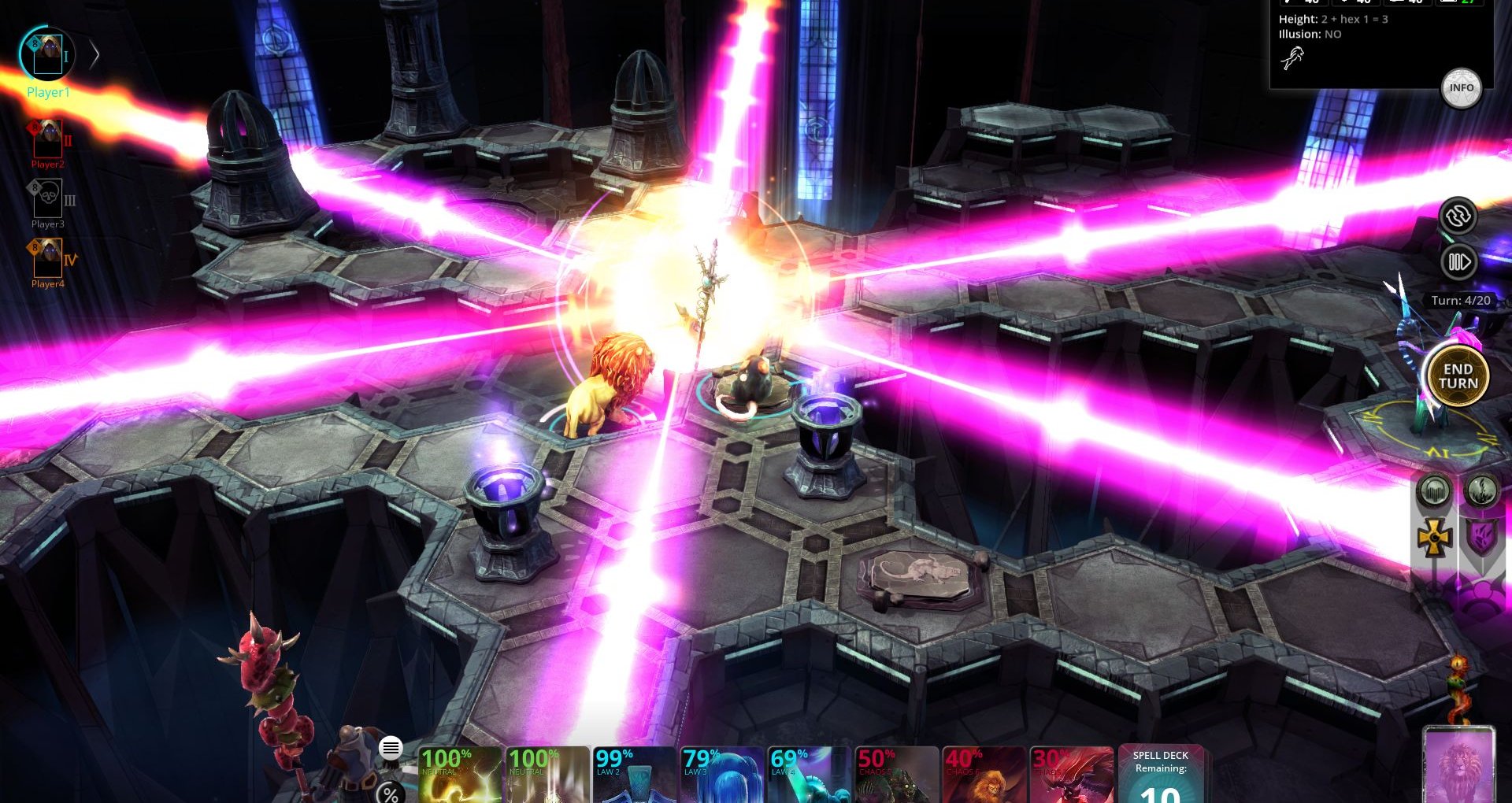
Every move counts. Games of Chaos Reborn are short, and each one only allows one move and attack per unit, and one spell or summon. High ground gives huge bonuses for attacking, and huge disadvantages for enemies below. Spells like Tangle Vine can cut off incoming units, only for your rival to fly a Pegasus over the top of a nearby hill. By default, each wizard is weak and barely able to clonk a Gooey Blob, but give them a mount like an elephant, a Magic Sword and Magic Shield, and suddenly they become a monster killing machine. Even the height of creatures matters. Every one has its specialities to remember and use, like the Paladin's ability to strike back, and Undead ones' immunity to mundane attacks. There’s a good selection, but not too many—it’s a manageable army, with every unit carefully chosen to pull its weight in a world where one lucky/successful hit from a Rat is as good as a Hellhound bite.
The random element never goes away, and leads to more cries of "bullshit!" than an overly-enthusiastic poop-identification club’s annual trivia competition. But it’s the layering of the elements that soon takes priority. The terrain control, the psychology, the preparation and twisting the numbers in your favour, all of it makes rounds of Chaos Reborn as tense and tactical as more predictable games like the esteemed Advance Wars series. It’s also fair, generally. For every moment where the RNG turns round and punches you in the face, it’ll have done it to your opponents. It’s just that those moments are never going to sit as sour.
A good example of the two sides meeting is Chaos’ most controversial mechanic, Illusions. These allow you to cast any summon with 100% success, with the Illusion hitting and acting just like the real thing—the catch being that if the other wizard guesses that it’s not real, they can cast the always-available Disbelieve spell on it and wipe it from existence without even burning up that turn’s cast. Reborn talks about itself in terms of poker as much as anything else, and it’s a good metaphor—you play the cards you have, but you also have to play your opponent.
You play the cards you have, but you also have to play your opponent.
The meat of Chaos Reborn is in the raw tactical game, played between two and four players on simple but attractive hex fields. Equipped mode offers an upgrade system where you can swap gold for gear like Talismen and Staffs to improve and customise your wizard as they level up. You don’t pick specific spells, like in a CCG, but your gear does skew the draws in your chosen direction and offers advantages like boosts to specific spells that you can build a playstyle around.
There’s also a single-player mode called Realms of Chaos, which plays like a simplified Disciples/Age of Wonders. This gives you a map to explore. You must recruit helpers in towns and fight a timer to avoid being Banished. It’s not a mode worth buying the game for in and of itself, but it’s a well-implemented and surprisingly comprehensive bonus feature on top of the core skirmish action, with just enough scripting and scope to let good worlds stand out.
Chaos Reborn lives and dies on its combat though, and it hasn’t lost any of its charm since the original version. Sadly, the community is a small one, which can make it hard to get a good game going. That in turn puts more reliance than there should be on the single-player side. It deserves a bigger player-base though, as provided you embrace its fundamental love of random chance and don't mind rolling with punches, it’s a fantastic tactical game with far more than luck on its side.
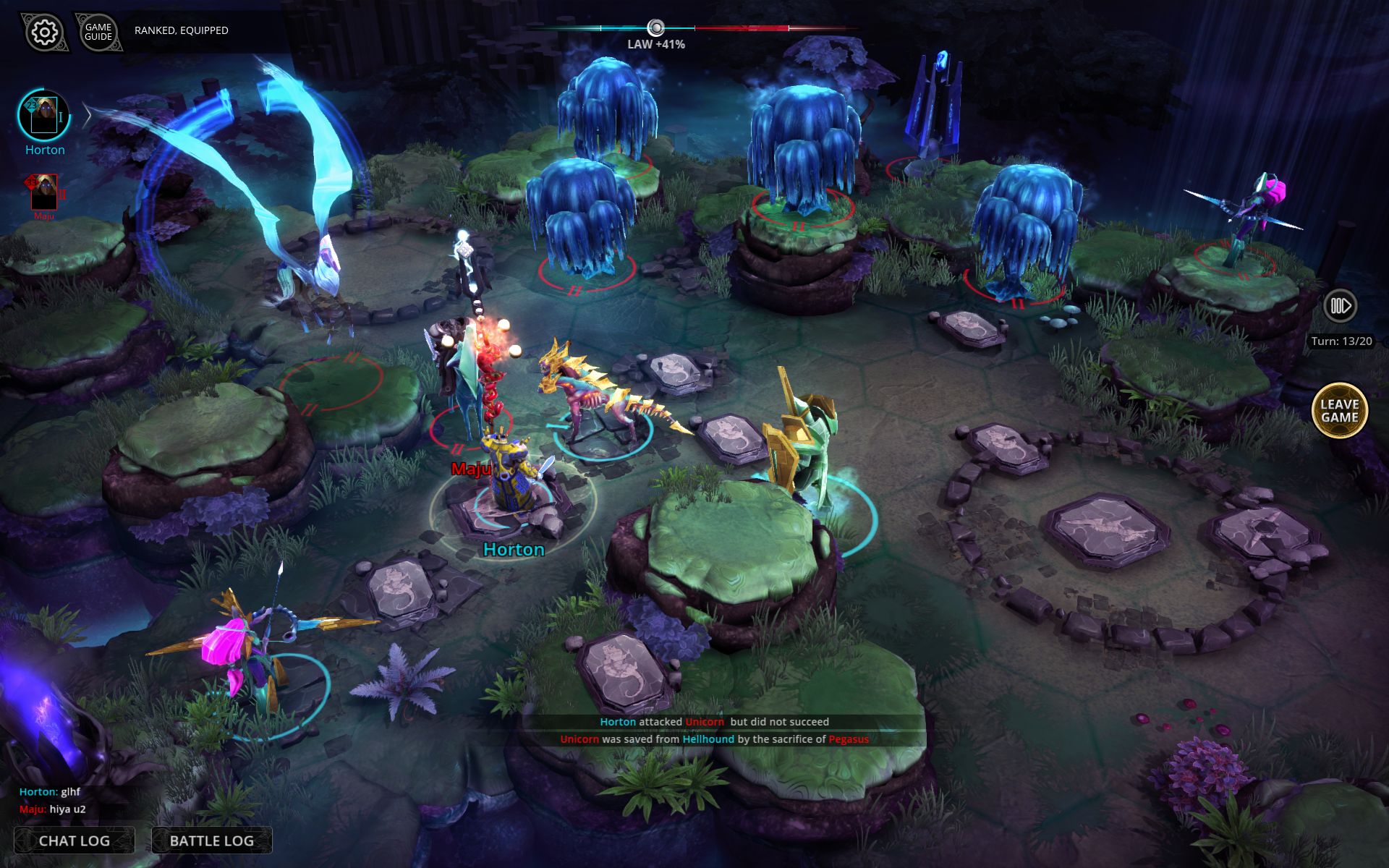
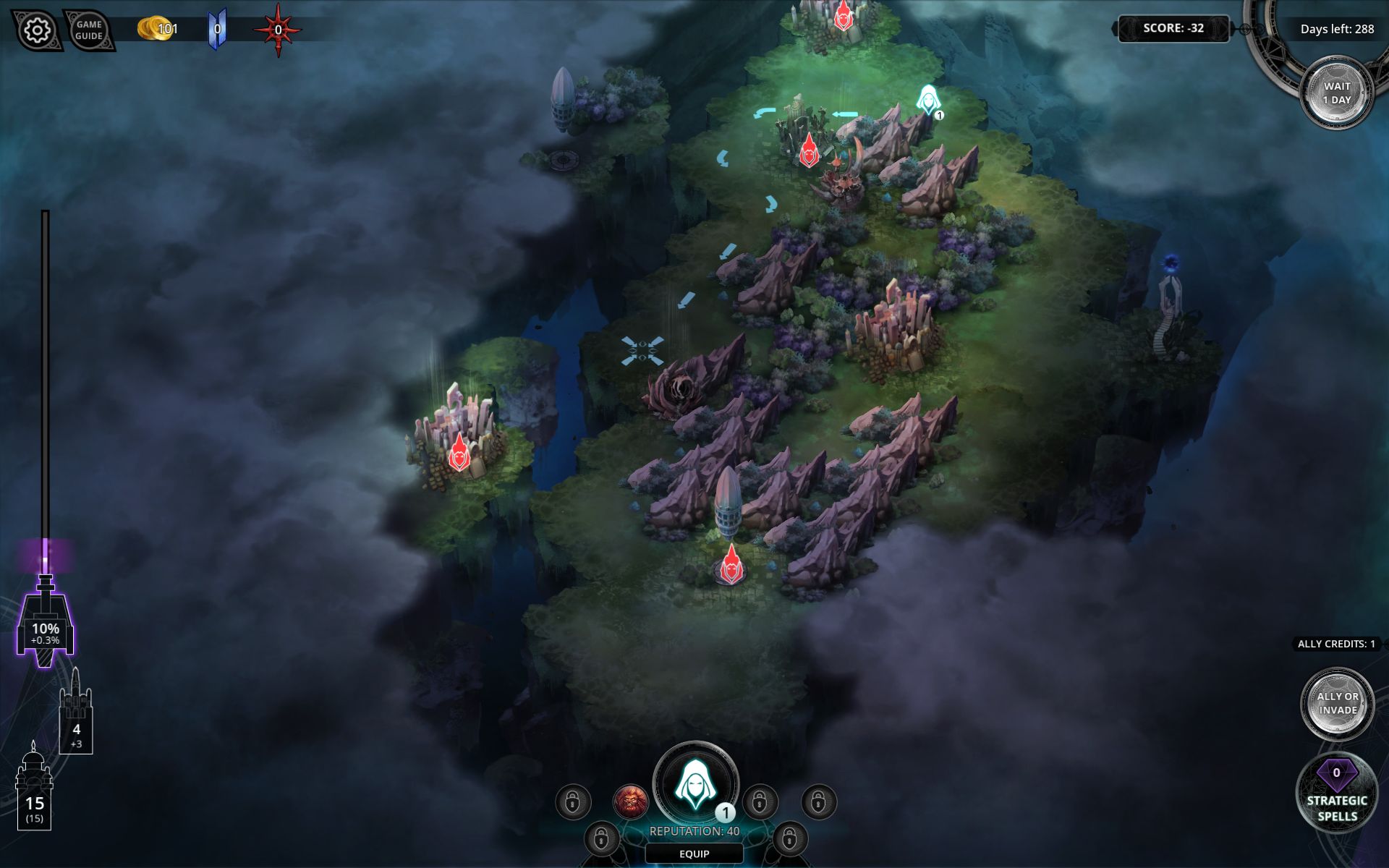
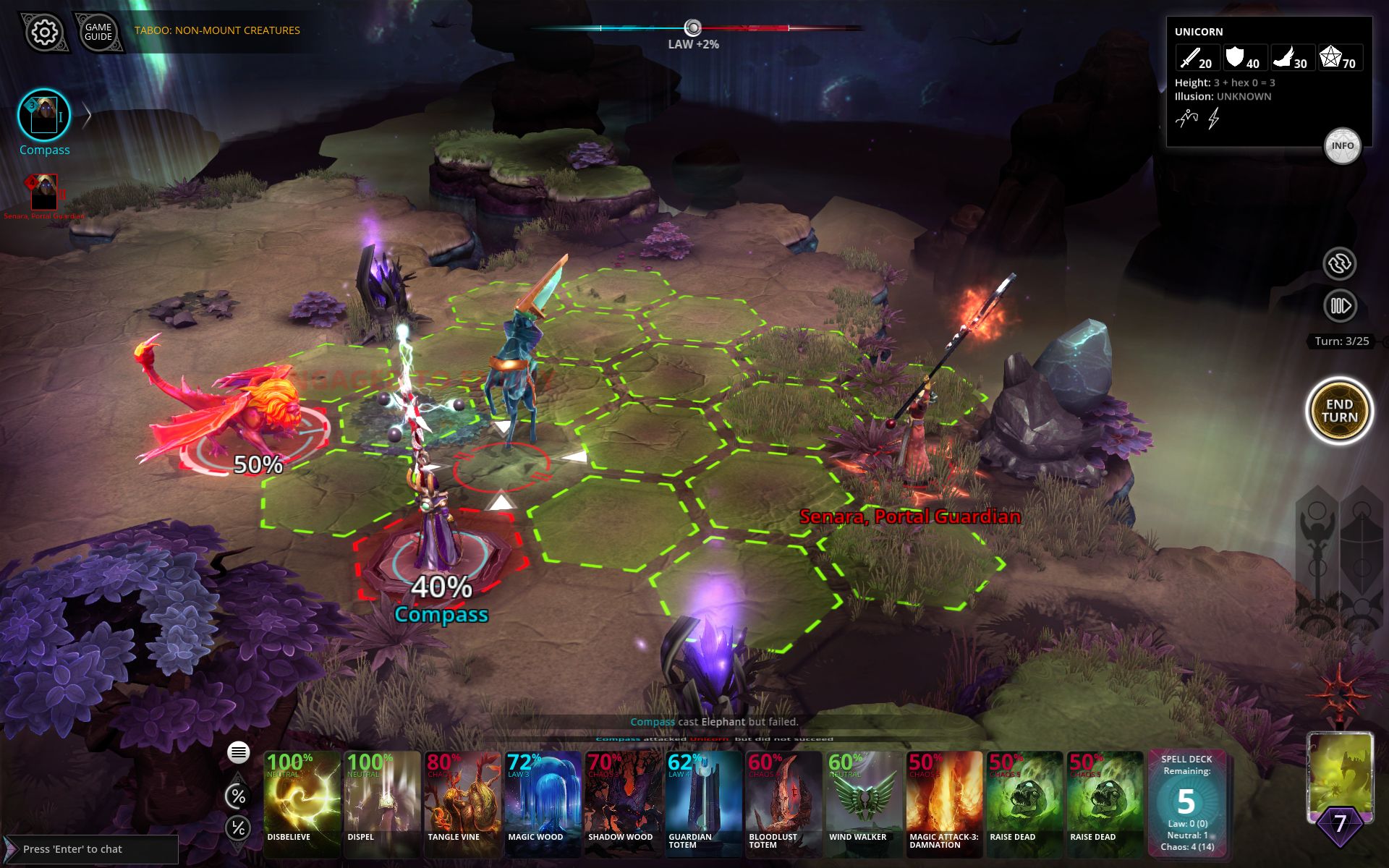
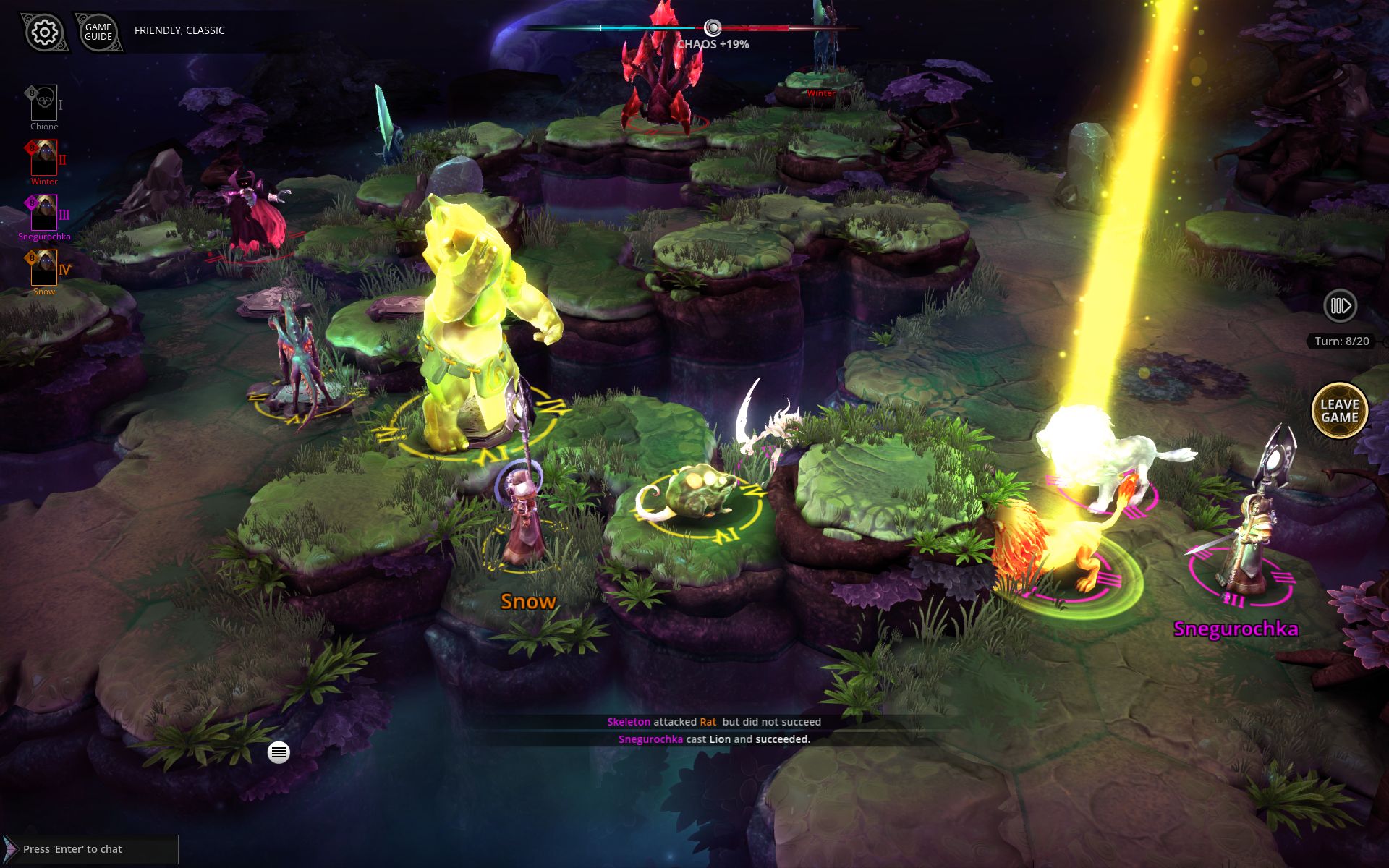
A true wizards wheeze, and a fine return for one of gamings oldest tactical classics.
